To feline fanatics, the sound of a cat meowing is a magical melody that moves us to joy. And to chat with a cat and have them meow in response, well, that’s just pure preciousness!
But why do cats meow?
Cats often reserve this form of vocalization for communication with people, depending more on scent and body language in their interactions with other felines. John Wright, a Mercer University psychologist studying animals and their behaviors, explains cats know how to work us to their advantage, telling LiveScience, “Vocal communication becomes a tool.”
And when it comes to a cat meowing at their person, so much can be said with one sound.
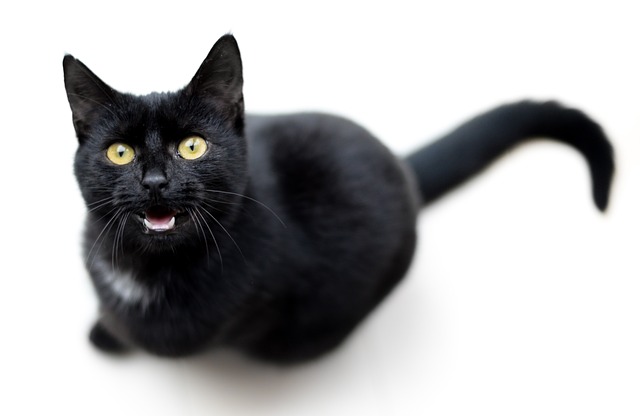
While all cats are individuals, some felines enjoy chatting more than others. It’s just their personality. But some cat breeds are known for being talkers. Is your cat just chatty by nature or is it dictated by their DNA? If it’s both, your house probably hears plenty of meow song!
So, what is kitty saying with all those meows?
A means to express their emotions, cats are telling us just what they want with each of their particular meows and the subtle nuances within them. By really listening to the sound of your cat’s meows, you’ll learn to hear the differences in tone, length, and volume. With enough conversation between you and your cat, you’ll soon be a master of feline speak.
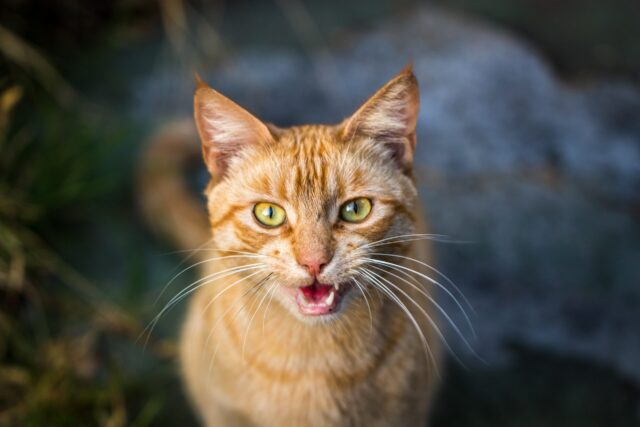
To get you started on your meowy way, check out these reasons your cat keeps meowing at you.
The Glossary of Cat Meowing and The Reasons Behind Them
1. Crying for Mom
From the moment they are born, kittens use their meow to tell their mom they need them. And those mews and cries tend to happen a lot since newborn kittens cannot see until their eyes open 8-12 days after birth. Imagine a new world you have no understanding of, and it’s all dark. That’s stressful for a little one, and those tiny cries will bring mom running to comfort her baby with purring and kisses.
As kittens age, they learn to reserve their meows, usually only doling them out when they want attention. And just like their cat moms, human-cat-parents tend to come fussing when their kitty babies start meowing!
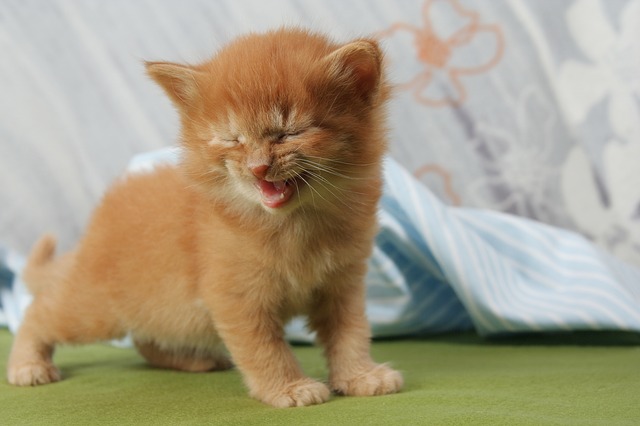
2. Just a Cat Meowing Hello
Upon entering a room, your cat might announce her presence with a charming meow that sounds like she’s actually saying hello or hi. Brilliant beings that they are, cats learn to mimic some of our speech when we spend time talking with them. And the greeting you use upon seeing them tends to be one of the ‘words’ they learn to emulate.
When you return home or enter a room where your cat is lounging, you may be greeted with a short, cutesy meow. If you hear several of these sweet meows in a row, bathe in the glow of knowing your cat is very excited to see you. Could cats be any cuter?
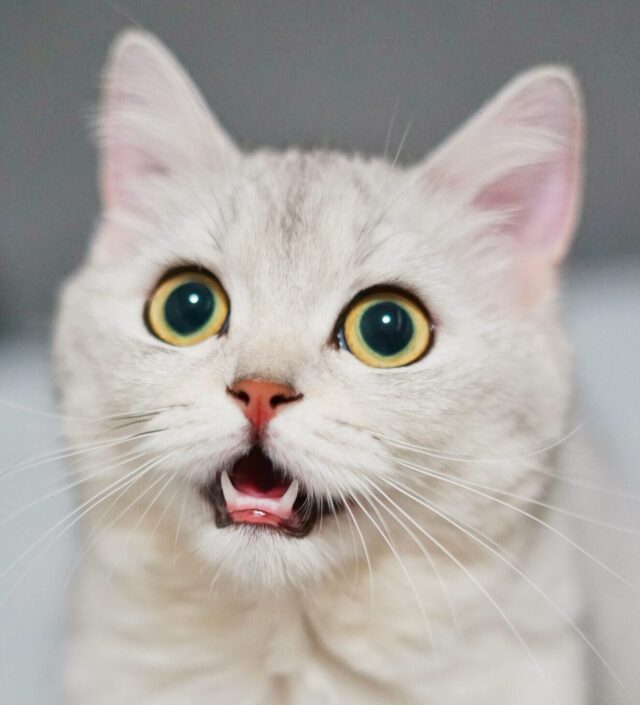
3. Feed Me, Right Meow!
There’s one meow every cat parent knows without fail: the bellowing, loudmouth cat-cry of hunger. And as soon as your cat sounds off with it, you know you better fill the food bowl. Until tummy desires are fulfilled, your cat will meow their tail off! Be sure to watch out once the hunger trumpet has sounded as this meow of demand usually accompanies a game called ‘tripping the human,’ which involves leg-twining and walking deliberately in your path. Anything to get that dinner!
4. Midnight Meowing Madness
Pretty much everyone knows felines keep an active nightlife, but why do cats meow so much at night? As cats are known to sleep roughly 12-16 hours a day, it’s no surprise they become active at night, prowling the dark for some fun. But is it a gentle meow you hear in the night?
Nope, it’s generally a loud, searching meow that takes you from peaceful slumber to wondering what shrilling beast has invaded your home. Then, you remember you have a cat when you hear the silly, curious meows signaling her desire to play. When the sun rises and kitty is having their nap, it’s time to get even by scooping your midnight meower up for hugs and kisses! Take that, loudmouth loves!
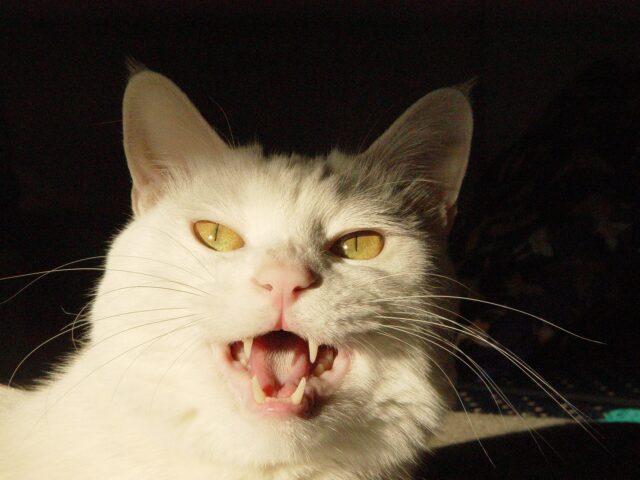
5. Outside Overtures in the Key of Meow
This meow song usually begins as a polite meow of request, but progresses to a pleading racket loud enough to claim all of your attention. Listen to the tone of the ‘I want out’ meow. You can hear the please, please, please in the voice of a cat who wants to explore the wild outdoors! And when begging to go out, you can generally find your feline staring out a window or lingering near the door, plotting escape…
If your cat is indoor-only or you prefer him to stay in, distract their want for outdoor time with play. You can also give them new things to explore, like boxes or paper bags. Toys and catnip provide excellent distractions for a determined cat.
6. I Am Hunter, Hear Me Mew
Ever seen your cat’s jaw chatter while watching a bird or squirrel? Chances are his voice chatters along too. These punctuated, repeated chirps, clicks, and grunts sound like your cat is trying to chatter their prey into a trance with their special cat powers. The truth is, this could be exactly what your cat is doing. Those studying cat behavior have theorized a few potential answers as to why cats chatter at birds and rodents. They might be mimicking prey for easier catches, feeling frustrated and it comes out as chirps, or cats might be so excited by spotting a kill, they can’t help vocalizing it. Whatever the truth behind this meow, there’s no mistaking a cat has entered hunter mode when they start it up!
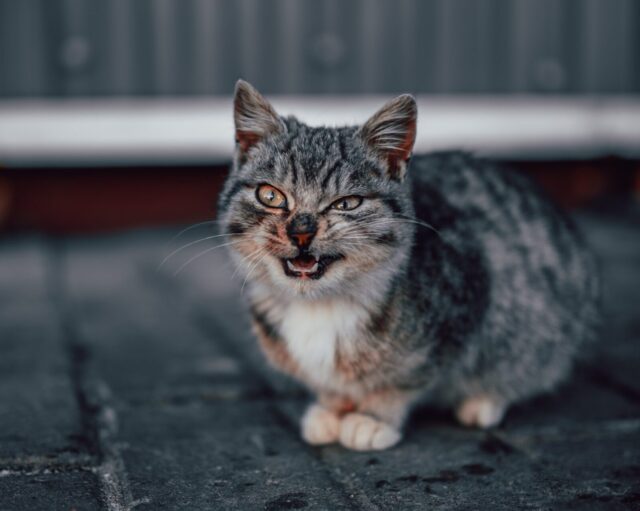
7. Excuse Meow?!
Sounding like a sudden siren, this attention-getting meow serves to alert you quickly. It’s often reserved for those moments you step on his tail or paw by accident. High-pitched and loud, this signal screams surprise and possibly pain. Look out for swiping claws in these moments of shock. Kitties tend to react with swift actions when surprised.
And when irked at us for some reason, like maybe tickling the tummy or picking her up when she’s not interested, cats can also sound like warbly goblins telling us off. Those peeved meows often occur when kitty precious has a mouthful of your hand!
8. The Long Meow of Angry Warning
You’ve heard your cat get mad. And it’s not what you’d call melodious music either. Long, loud, and very direct, an angry meow can sound like your cat might be auditioning for a scream band and often dissolves into growling and hissing. Cats usually make such a meow when someone is invading their territory. One of the most common scenarios behind this sound-off occurs when a cat spots a stranger outside the window. Be it another cat or some other animal; your cat feels this critter doesn’t belong and has no problem telling the invader to get off their lawn!
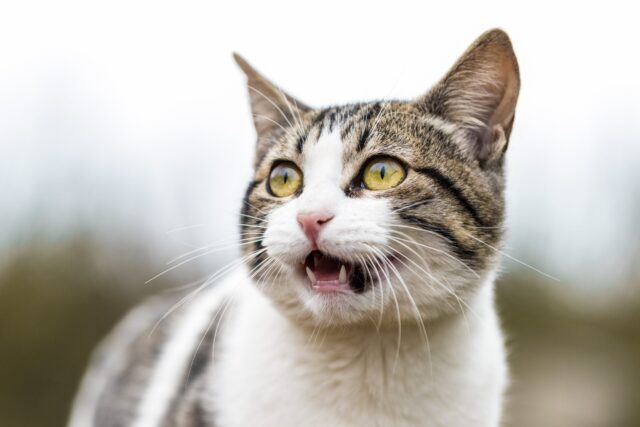
9. The Wail of Woe
When you hear this eerie moan, you know such a concerned meow means trouble. It signifies a cat feels distressed, possibly in pain, and definitely frustrated. This low wail is a definite sign your cat needs your attention. An example scenario? Many cats emit this disconcerting noise right before vomiting. Whatever reason your cat meows in this fashion, if you hear it, check on the furbaby right away!
With so much to be said between a cat and his person, there are reasons aplenty why cats meow, and this guide serves as a general overview. All felines may communicate with humans in the common meow tongue, but inside your home, you and your cat speak a language all your own. You know best what your cat’s vocalizations mean.
But what does it mean when a cat won’t stop meowing? Could all that cat crying be a sign of a problem?
Excessive Meowing in Cats
While we love the sound of feline serenades, excessive vocalization in cats can be an indicator of something wrong in kitty’s life. If your cat has started meowing nonstop and in ways that indicate displeasure, look for any of these factors:
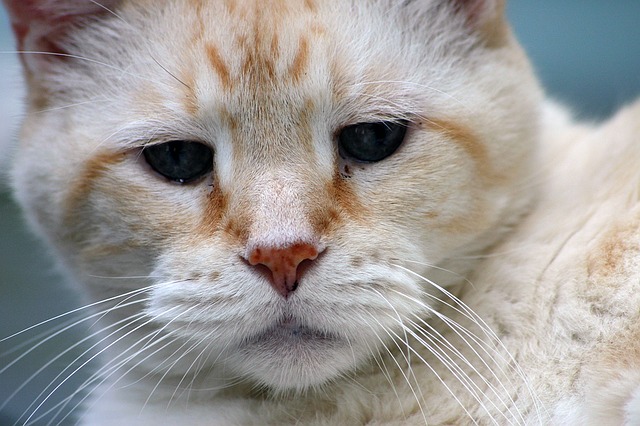
Aging
As cats age, cognitive issues and other age-related feline disorders can cause senior cats to wander the house meowing. Confused meowing in old cats often occurs at night when they’re alone in the dark. Dr. Amy Flowers, DVM, and WebMD suggest, “A nightlight sometimes can help if your cat becomes disoriented at night, and veterinarians often can prescribe medications that help these symptoms.”
Stress
Anxiety can cause cats to pace around their homes, meowing out their distress. To figure out what’s causing anxiety in your cat, put yourself in her paws. Has anything changed? Shake-ups in the routine can really mess with a cat. From switching food or litter to adding another cat to the family, many factors can stress a cat.
Separation anxiety is a common cause of excessive meowing. While some cats get upset over new additions, other cats may crave the company, and a new feline sibling could be just the answer. But, if another cat isn’t in the cards, the ASPCA recommends considering “having a pet sitter come partway through the day to visit and play with her.”
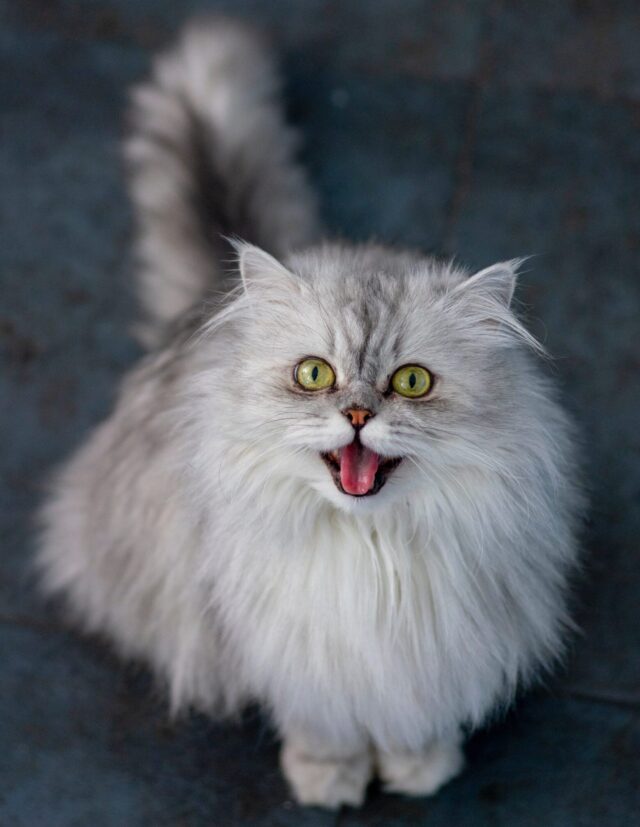
Perhaps your cat is stressed over the food bowl. If it’s a new food your cat won’t eat, get tricky and add ingredients, like low-sodium broths or food toppers, to entice your cat’s picky palate. Now, if you’re dealing with a feline who’s not happy about being on a diet, then get ready to deal with the crying. Eventually, kitty will get the point, but in the meantime, “consult with your veterinarian about high-fiber diet foods or supplements that can help your cat feel satisfied with her reduced intake.”
Litter pans and stress often go hand in hand. Cats who feel anxious about where to go will often cry about the situation and wind up going where they shouldn’t. Check out these 9 Litter Box Mistakes, and be sure you aren’t adding to litter box anxiety.
Solving the stress problem will take time and modifications to behaviors, but patience and understanding will help your cat get back to living in peace.
Illness
A number of feline illnesses include excessive vocalizations as a symptom. BCCB Pet Clinic founder Dr. Courtney Marsh lists medical conditions like hyperthyroidism, blood pressure issues, or throat disorders as reasons behind changes in vocal behaviors.
“There are also instances that would constitute an emergency, like a urinary tract blockage,” warns Dr. Marsh. “Many cats will vocalize loudly and continuously in the litter box because that condition is so painful.”
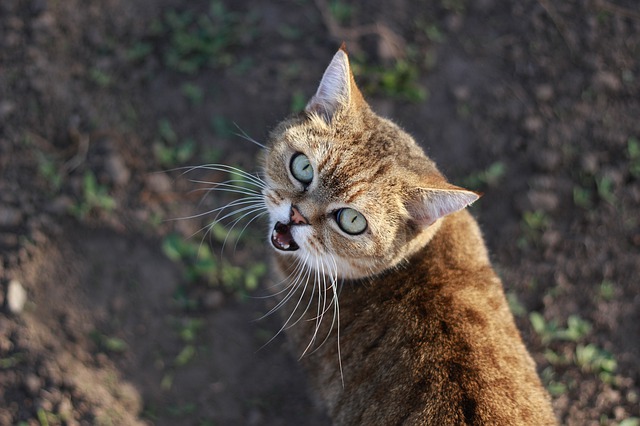
Pain from Injury
If you notice your cat has started grumbling while walking or jumping up and down from his perches, look him over for any tender spots. The same goes if your cat continuously grooms a particular spot or hands out an angry meow when you touch a certain area. To resolve this issue, see the vet.
Wanting to Mate
Cats who haven’t been spayed or neutered can get very vocal. Female cats in heat will meow nonstop, looking for a mate. Males who smell them will yowl while trying to find them. And the caterwauling of desire can last for hours at a time! Do your ears and the yearning cats a favor and get everyone fixed.
Bringing Cat Crying Back to Happy Meowing
No matter the suspected cause behind your cat’s excessive meowing, make an appointment with the veterinarian. Cats are tough, and it can be hard to know when they don’t feel well. Nonstop crying and meowing may be the only symptom of what ails them. Respect your cat’s words and get them the help they need to heal.
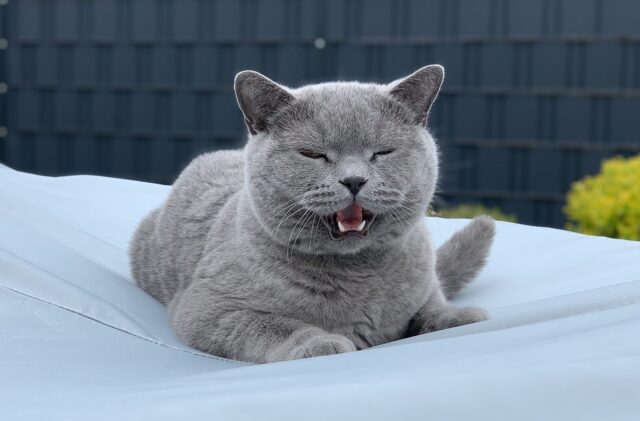
When helping your cat bring the vocal acrobatics back to normal levels, remaining patient is crucial. Cats don’t respond well to negative punishments such as yelling or spraying with a water bottle. Never hit or spank a cat. Instead, try positive reinforcement and maybe consider clicker training to discourage behaviors like meowing too much.
And remember, everything your darling feline has to say is important. So listen up and enjoy meaningful conversations with your cat!
